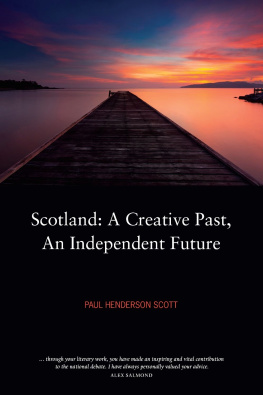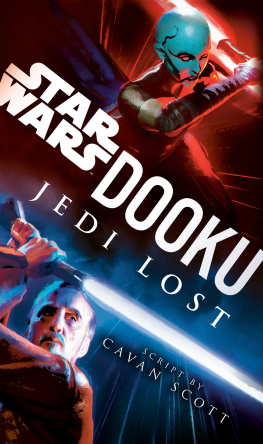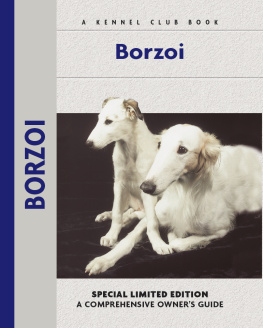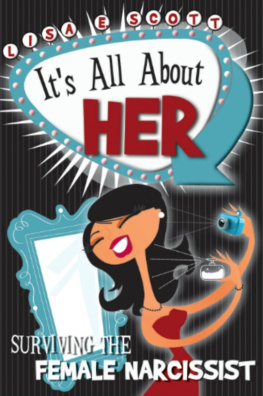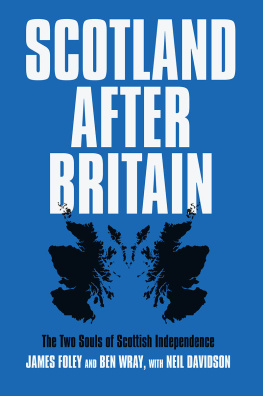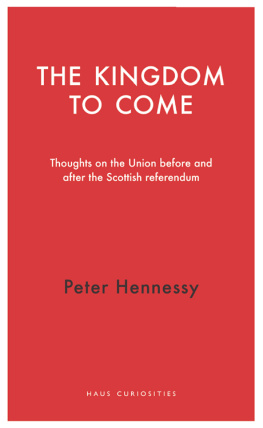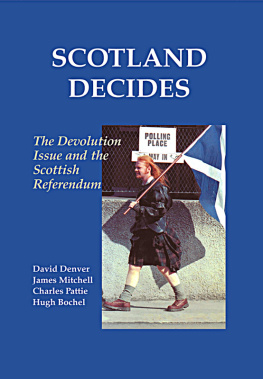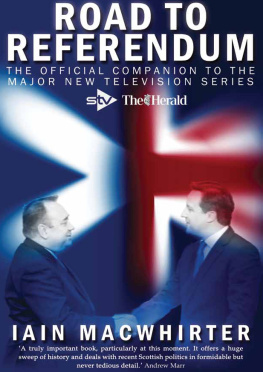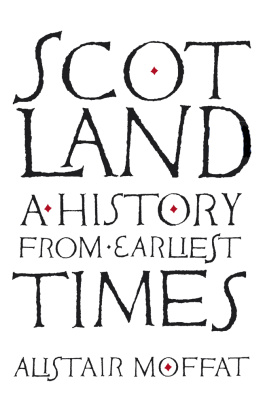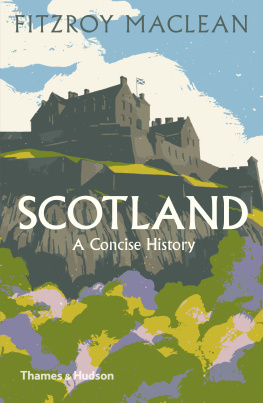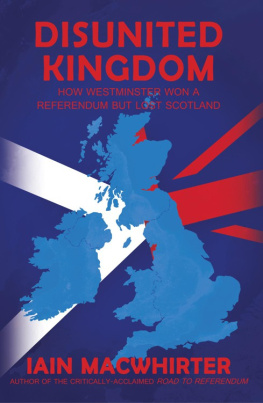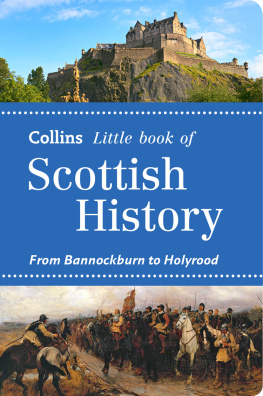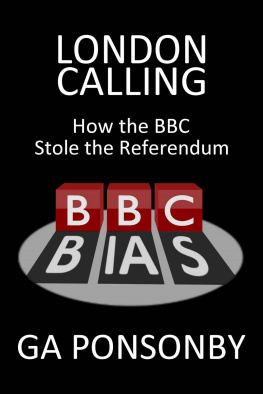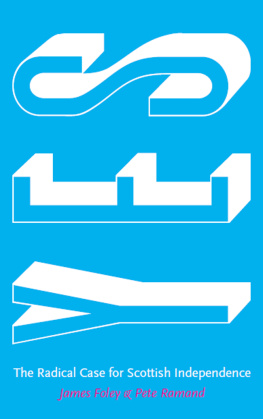PAUL HENDERSON SCOTT was born in Edinburgh and educated at the Royal High School and Edinburgh University. He was in 52nd (Lowland) and 7th Armed Divisions during the war and then joined the Diplomatic Service. He was in Berlin during the whole of the Soviet blockade and in Cuba during the Missile Crisis. In 1980 he returned to Edinburgh. Since then he has been Rector of Dundee University, President of both the Saltire Society and Scottish PEN , and Vice-President of the SNP and its Spokesman on Culture and International Affairs as well as writing more than a dozen books and editing another dozen or so. His books include: Walter Scott and Scotland, John Galt, Towards Independence, Andrew Fletcher and the Treaty of Union, Still in Bed with an Elephant, Defoe in Edinburgh and Other Papers, The Boasted Advantages, A 20th Century Life (his autobiography), Scotland Resurgent, The Union of 1707: Why and How, The Age of Liberation and The New Scotland .
Scotland: A Creative Past,
An Independent Futur e
PAUL HENDERSON SCOTT

Luath Press Limited
EDINBURGH
www.luath.co.uk
First published 2014
ISBN (print) : 978-1-908373-94-6
ISBN (eBook): 978-1-909912-68-7
The publishers acknowledge the support of Creative Scotland towards the publication of this volume.

The authors right to be identified as author of this work under the Copyright, Designs and Patents Act 1988 has been asserted.
Paul Henderson Scott
Contents
Preface
My View of Scotland
I HAVE SPENT about 40 years of my life abroad, first as a soldier and then as a diplomat, but Scotland was never far from my mind. Scottish books went everywhere with me and I came back to Edinburgh as often as possible. I was there for part of the first Edinburgh Festival in 1947 and I returned for at least a few days to almost every one since then. I have found a great deal to admire and enjoy in all the countries where I have lived, but I never had any doubt that Scotland was where I was most content and to which I was determined to return permanently as soon as I could.
Why? It is not the scenery, although much of it is very beautiful and there are views in Edinburgh which I enjoy more than in any other city I know. It is not the climate, although it suits me very well because I do not like heat. Perhaps it is partly the associations because you constantly encounter reminders of old friends and of people and events from history and literature. It is natural enough to have a special fondness for your place of origin. But I have no doubt that the main reason why I feel more at home in Scotland than anywhere else is quite simply the character of the people. Of course there are exceptions, but nearly always they are sensible and friendly and free of arrogance or pretension. They say what they think and it is very often well worth hearing.
In his essay Of National Characters , David Hume said that each nation had a peculiar set of manners, although there were always exceptions, and they were subject to considerable change from one age to another. Now we are living in an age of more rapid and drastic change than anything which could be imagined in the 18th Century. We are living in a shrinking and globalised world of instant communication, rapid travel and vast movements of populations. Even the climate is changing. Does this mean that national characters will change out of all recognition or even that the whole population of the world will eventually become a uniform and indistinguishable mass?
Presumably that is a possibility, but at present the opposite seems to be happening. Certainly in Europe, and perhaps elsewhere in the world, people are reacting against imposed uniformity by asserting their independence and their own character. The empires and the multi-national states all over Europe are resolving into their component parts. It is their independence and distinctiveness which encourage their contentment, prosperity and ambition. We are moving in that direction as well. Montenegro today; Scotland tomorrow.
Also, it is remarkable how the effects of shared historical experience last long after the events. Scottish sturdiness and readiness to help one another is perhaps the consequence of centuries of hard experience in the long war against a larger and wealthier neighbour. The influence of John Knoxs First Book of Discipline is, I think, still visible in our concern for morality, respect for education, egalitarianism, belief in effort and distrust of ostentation and self-indulgence. It is because of these quali ties that Scotland has made such a remarkable contribution to the world. There have been many other religions in Scotland for more than a Century and there is now increasing scepticism and indifference to religious influences. Also many people have succumbed to the contemporary pressures for consumerism, the tolerance of debt and indifference to ideas. Even so, my impression is that many Scots, perhaps most of them, are still influenced by the old values.
We have many serious problems to face in Scotland, even if most of them are hidden away in the deprived areas of our towns, poor education, addiction to drugs and alcohol, violence, poverty and hopelessness. They are a denial of our traditional Scottish values and we must confront them.
So far, this is a copy of a paper which I wrote shortly after I retired from the Diplomatic Service and returned to live in Edinburgh. Since then the Scottish Parliament has been restored, but with very restricted powers. We shall have the opportunity to vote in the Referendum in 2014 to recover our Independence and a Parliament with the power to make Scotland a more contented, prosperous and civilised country.
Introduction
IN THE LAST 20 years I have published five collections of my essays, reviews, lectures and miscellaneous papers. This is a similar book, but recent events have given it a distinct theme. The first two chapters are concerned with some of the events and the literature which have contributed over centuries to the evolution of the distinctive character of Scotland. Chapter three deals with the loss of Scottish independence by the Union of 1707, and the next one with the events in the opposite direction of the last few years.
This is has been a period of rapid transformation in the mood and expectation of the Scottish people. The restitution of the Scottish Parliament in May 1999 with very limited powers naturally stimulated a demand that they should be increased. That was not the intention of Blairs Labour Government. They expected that the Scottish people would now be content and make no further demands. One of their senior ministers, George Robertson, famously said that the new change will kill the SNP stone-dead. Gordon Wilson of the SNP said the opposite. He predicted that the fact that the new body was called a Parliament, and not an Assembly, would provoke expectations that it would have to acquire all the appropriate powers implied by the name. The election of the SNP as the party of Government in 2007, with Alex Salmond as First Minister, had similar implications. So had the Westminster parliamentary election in 2010. The emergence of the Conservatives as the largest party in England with 306 seats, but with only one in Scotland, was widely interpreted as an indication that the United Kingdom was now disunited. Then the overwhelming victory of the SNP in the Scottish election in May 2011 strongly suggests that a major constitutional change is now inevitable.

